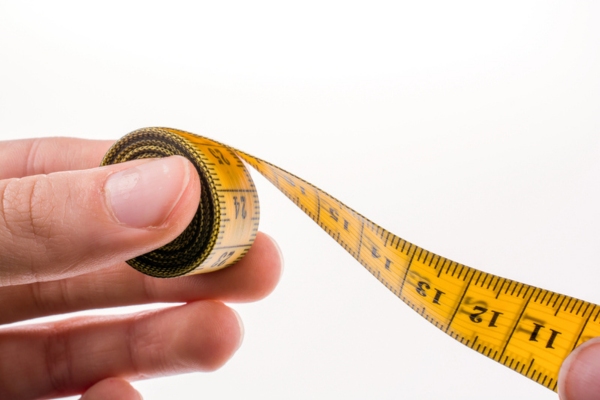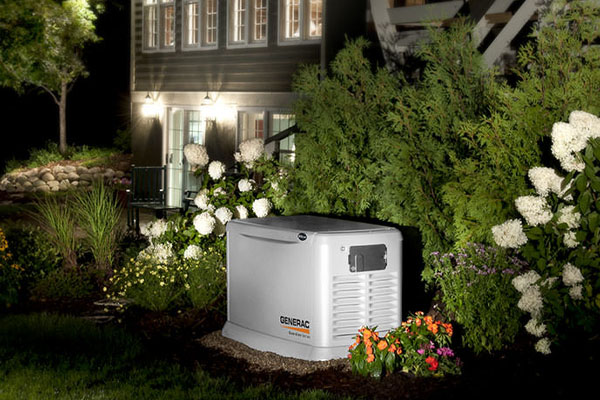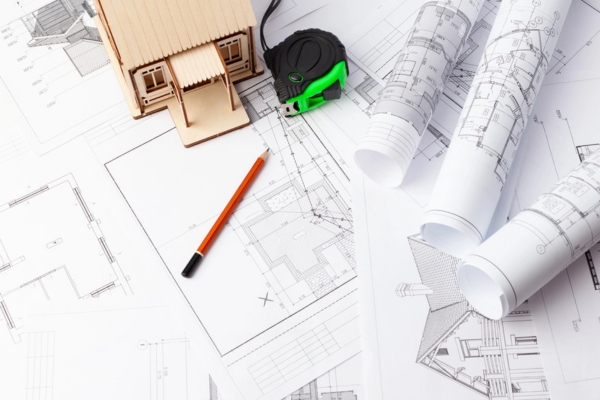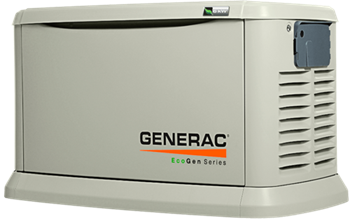
Power outages can disrupt your everyday life, but a well-sized standby generator ensures your home remains functional and comfortable. Selecting the right generator requires careful planning and knowledge of your energy requirements. PFO Heating & Air Conditioning provides expert guidance to help homeowners choose and install reliable standby generators that match their needs. This article explains the critical steps of how to size a standby generator, empowering you to make an informed decision and safeguard your home during power disruptions.
How to Size a Standby Generator: A Homeowner’s Complete Guide
Contents
- 1 How to Size a Standby Generator: A Homeowner’s Complete Guide
- 2 Why Sizing a Backup Generator Matters
- 3 Calculating Your Home’s Power Needs
- 4 Types of Whole-House Generators & Their Capacities
- 5 What to Consider When Sizing a Power Generator
- 6 Tools and Resources for Accurate Backup Generator Sizing
- 7 Installation Considerations for Standby Generators
- 8 Why Choose PFO Heating & Air Conditioning for Whole-House Generator Sizing & Installation?
- 9 How To Size A Standby Generator: FAQs
- 9.1 What Happens If My Standby Generator Is Too Small for My Home?
- 9.2 Can I Use a Portable Generator Instead of a Standby Generator?
- 9.3 How Does My Home’s Electrical Panel Affect Generator Sizing?
- 9.4 Should I Consider My Future Energy Needs When Sizing a Generator?
- 9.5 What Is the Lifespan of a Standby Generator?
- 10 Conclusion
- 11 Call PFO Heating & Air Conditioning for Expert Backup Generator Solutions
Understanding the process of selecting the right generator ensures your home remains powered when it matters most. Let’s explore the key considerations when sizing a standby generator.
Why Sizing a Backup Generator Matters

Proper sizing of a standby generator is essential to maintaining safe and efficient power during outages. An undersized generator cannot provide sufficient electricity, leading to overloaded circuits, potential damage to sensitive appliances, and frequent system shutdowns.
On the other hand, an oversized generator results in unnecessary fuel consumption, increased wear and tear, and avoidable maintenance costs. By matching the generator’s capacity to your home’s specific energy requirements, you ensure consistent performance, reduced waste, and reliable operation when you need it most.
Don’t Get Left in the Dark: Protect your home and keep life running smoothly with a reliable whole-house generator tailored to your needs. Contact us today!
Calculating Your Home’s Power Needs

To size a standby generator correctly, begin by listing the appliances and systems you’ll need during an outage. Prioritize essentials such as your HVAC system, refrigerator, lighting, sump pump, and medical equipment. These items ensure safety, comfort, and functionality during extended power disruptions.
Next, calculate the total wattage required to power these essential items. This involves determining their running wattage (continuous operation) and starting wattage (initial power surge when turned on). For example, refrigerators typically need 600-800 running watts but may require up to 1,200 watts to start. Similarly, an average central air conditioner might need 3,000 running watts and up to 6,000 starting watts.
Need Help Choosing the Right Generator? Our experts will assess your energy needs and recommend the perfect standby generator for your home. Call now!
Peak vs. Continuous Power Demands
It’s crucial to distinguish between the generator’s capacity to handle peak power (startup wattage) and continuous power (running wattage). A generator must be able to accommodate the higher initial demand of appliances without overloading while sustaining the ongoing operational load efficiently. Balancing these demands ensures reliable performance and avoids strain on the generator.
Types of Whole-House Generators & Their Capacities

Choosing the right type of generator depends on the level of backup power your home requires.
- Whole-House Generators: Whole-house generators provide complete backup power for all systems in the home, including HVAC, lighting, and appliances. They are ideal for larger homes or those requiring full coverage during outages. These generators typically have capacities ranging from 22 kW to 48 kW or more, depending on energy needs.
- Partial Home Generators: Partial home generators power specific circuits or essential loads, such as refrigerators, sump pumps, and lights. They offer a cost-effective option for households with limited backup power needs. Capacities usually range from 8 kW to 20 kW, depending on the circuits prioritized.
Prepare for the Unexpected: Ensure your family’s safety and comfort during power outages with a backup generator that delivers dependable performance. Reach out today!
What to Consider When Sizing a Power Generator
Selecting the right generator requires careful consideration of various factors that impact its performance and long-term suitability for your home.
Home Size and Layout

The size of your home and its layout play a significant role in determining power needs. Larger homes require higher generator capacities to ensure adequate coverage, especially if multiple floors or detached structures like garages or workshops are included. A generator must supply consistent power to all essential circuits across these spaces.
Climate and Seasonal Considerations
Your local climate and seasonal demands can greatly affect energy consumption. In colder regions, heating systems, electric space heaters, and even heated flooring can require substantial power. In contrast, homes in hot climates rely heavily on air conditioning and dehumidifiers, increasing electricity usage. A properly sized generator should account for these seasonal fluctuations.
Upgrade Your Home’s Power Security: From precise generator sizing to seamless installation and expert maintenance, we’ve got everything you need for reliable power. Contact us now!
Future Energy Demands
Planning for future energy needs is vital when selecting a generator. Adding electric vehicle (EV) chargers, high-capacity appliances, or smart home systems can significantly increase your power requirements. Choosing a slightly higher capacity generator ensures it can handle these potential upgrades without becoming obsolete.
Generator Fuel Type and Availability

The fuel type you choose—natural gas, propane, or diesel—directly impacts the generator’s performance and size requirements. Natural gas and propane are common for residential use due to their cleaner combustion and easier integration with home systems, but availability can vary by location. Diesel generators typically offer higher efficiency and durability but require more storage space and fuel management. Understanding your fuel options ensures the generator meets your energy and logistical needs.
Power Up Your Peace of Mind: Say goodbye to unpredictable outages with our professional generator solutions designed to keep your home fully powered. Call today!
Tools and Resources for Accurate Backup Generator Sizing
Accurately sizing a standby generator requires careful assessment, and there are tools available to assist homeowners. Online generator sizing calculators provide quick estimates by factoring in common appliances and systems, but they are not substitutes for professional evaluations. Relying solely on these tools can result in errors, such as underestimating power needs or overlooking critical systems, which may result in inadequate performance during an outage.
Professional energy assessments, like those offered by PFO Heating & Air Conditioning, ensure precise calculations tailored to your home’s unique requirements. Expert evaluations account for detailed energy usage, future demands, and proper installation, providing reliable recommendations for the right generator size.
Installation Considerations for Standby Generators
Proper standby generator installation involves several critical factors to ensure safety and efficiency.
Space and Placement Requirements
The size of the generator influences its placement, as it requires adequate space and clearance from walls, windows, and vents to ensure safe operation and proper airflow. Generators should be installed on a level, stable surface, typically a concrete pad, in an area that minimizes noise and exhaust impact on the home.
Local Codes and Regulations
Compliance with local codes and regulations is important for generator installation. Permits may be required, and the generator must meet specific safety and zoning standards. Ensuring adherence to these guidelines avoids legal issues and guarantees safe and reliable operation. Consulting professionals familiar with local requirements simplifies the process and ensures everything is up to code.
Looking for Reliable Backup Power?: Count on PFO Heating & Air Conditioning to deliver customized generator solutions and top-notch service to keep your home powered through any storm. Reach out now!
Why Choose PFO Heating & Air Conditioning for Whole-House Generator Sizing & Installation?
When it comes to whole-house generator sizing and installation, PFO Heating & Air Conditioning offers the expertise and customer-focused approach you can trust. With years of experience, we provide tailored energy assessments to determine the ideal generator for your home’s unique needs.
Our comprehensive services include professional installation, ongoing maintenance plans, and expert support to ensure your generator performs reliably. By choosing PFO Heating & Air Conditioning, you gain peace of mind knowing your home will remain powered and secure during any outage, no matter the circumstances.
How To Size A Standby Generator: FAQs

What Happens If My Standby Generator Is Too Small for My Home?
If your generator is undersized, it will struggle to meet your home’s power demands, causing it to overwork and potentially shut down or fail entirely. This can lead to frequent outages, damage to connected appliances, and even shorten the generator’s lifespan. Proper sizing ensures a seamless power supply without risking system overload.
Can I Use a Portable Generator Instead of a Standby Generator?
While portable generators are a budget-friendly option for powering a few vital appliances during an outage, they are not a substitute for standby generators. Standby generators provide automatic operation, greater capacity, and the ability to power your entire home. They’re also permanently installed and connected to your home’s fuel source, eliminating the need for manual setup or refueling.
How Does My Home’s Electrical Panel Affect Generator Sizing?
Your home’s electrical panel plays a crucial role in generator sizing because it determines the circuits and appliances that can be powered during an outage. A professional assessment ensures your generator has enough capacity to align with the panel’s load requirements and your home’s overall energy needs, avoiding compatibility issues and power shortages.
Say Goodbye to Power Outages: With a professionally installed standby generator, your home will always be prepared for unexpected blackouts. Call now!
Should I Consider My Future Energy Needs When Sizing a Generator?
Absolutely! Planning for future energy needs is important to avoid outgrowing your generator’s capacity. Whether you’re considering adding an electric vehicle charger, upgrading appliances, or expanding your home, choosing a slightly larger generator ensures it can handle these increased demands, saving you from the cost of an upgrade later.
What Is the Lifespan of a Standby Generator?
With regular upkeep and proper care, a high-quality standby generator can last 15–20 years or more. This includes routine oil changes, inspections, and addressing any minor issues promptly. Partnering with a professional service provider like PFO Heating & Air Conditioning ensures your generator remains reliable, efficient, and ready to perform during every outage.
Conclusion
Properly sizing a standby generator is essential to ensuring reliable power during outages. Every step is crucial in selecting the right generator, from identifying critical circuits and calculating wattage requirements to considering home size, climate, and future energy demands. Accurate sizing prevents inefficiencies, protects appliances, and ensures seamless operation.
Don’t wait for the next power outage to leave your home in the dark. Contact PFO Heating & Air Conditioning today for professional energy assessments, expert recommendations, and dependable installation services. Let us help you choose and install the perfect standby generator to keep your home powered and secure.
Your Trusted Generator Experts: From evaluating your power needs to offering ongoing support, we provide complete generator services you can rely on. Contact us today!
Call PFO Heating & Air Conditioning for Expert Backup Generator Solutions
PFO Heating & Air Conditioning provides top-tier whole-house generator services throughout the Greater Princeton, NJ area. Our professionally certified technicians are thoroughly trained to offer outstanding maintenance, repairs, and installations for standby generators.
Whether you’re looking to repair a backup generator, install a new one, or ensure your current model is at peak performance, our expert team is ready to deliver precise services customized to meet your unique needs. At PFO Heating & Air Conditioning, we are committed to providing competitively priced generator services on demand.
Choosing us means receiving dependable service, engaging with friendly and knowledgeable staff, and benefiting from clear pricing. Your satisfaction is our priority, which is why we back our services with a solid guarantee. Contact us today to book your service visit and receive a free in-home consultation. Call now!
Click here to contact us now or call us at (800) 253-9001 to find out more! Click the link to view our service area.

Related Articles:



